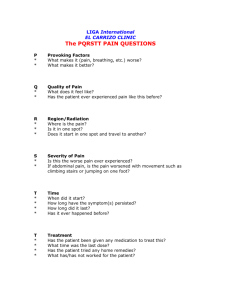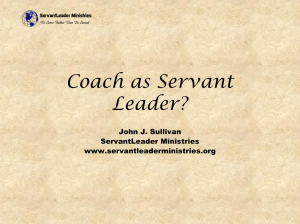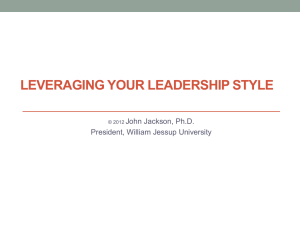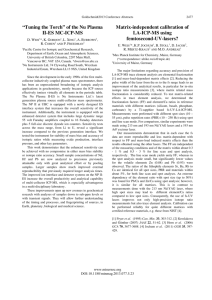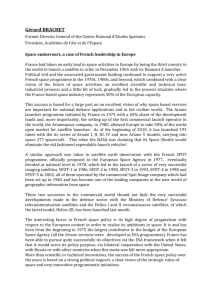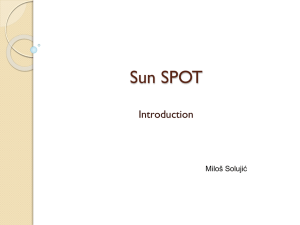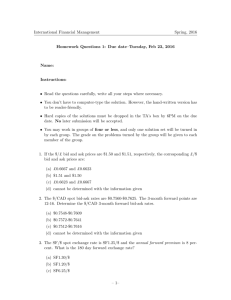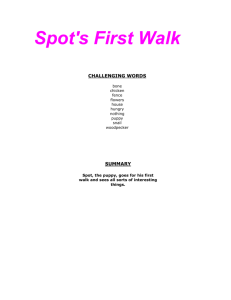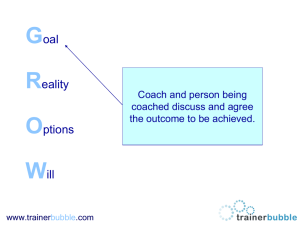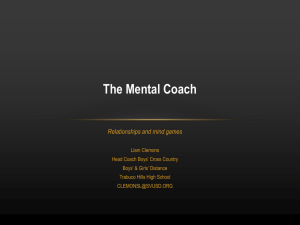CIC Conference Landscaping Instruction Through Observations
advertisement
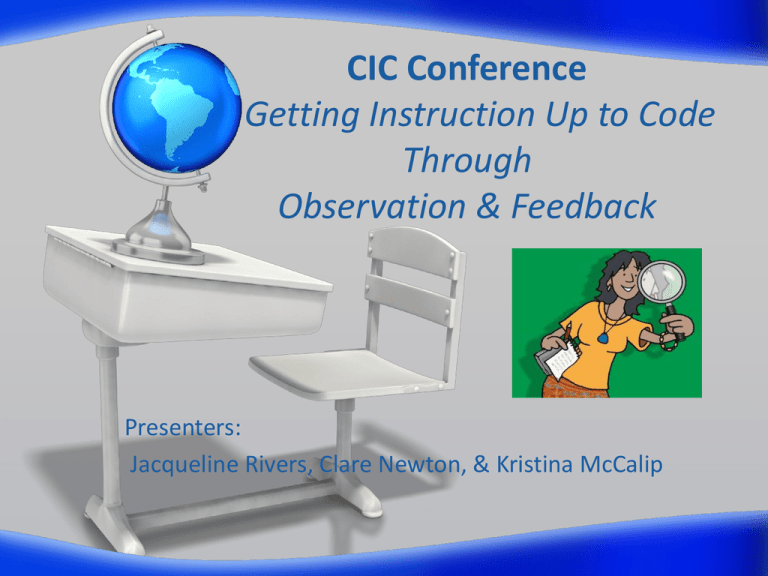
CIC Conference Getting Instruction Up to Code Through Observation & Feedback Presenters: Jacqueline Rivers, Clare Newton, & Kristina McCalip •Session Focus • LO-1. Participants will understand how to conduct focused classroom observations. • • DOL-1: After viewing a video clip, participants will state at least one data-focused observation using the Spot Observation Form LO-2. Participants will apply their understanding through practice using observation and feedback tools, including the district’s Spot Observation Form and the “Six Steps for Effective Feedback” map. • DOL-2: After viewing a video clip, participants will use their Spot observation forms and the “Six Steps for Effective Feedback” map to accurately demonstrate all six steps within a role play. •Agenda Welcome and Focus Focus on Observation and Feedback Calibrating Observations Piecing together the “Six Steps for Effective Feedback” Analyzing the “Six Steps for Effective Feedback” map Apply the Learning Reflections •Session Norms Respect others Actively Listen & Participate Monitor your Technology Take care of your needs Use cell phone etiquette •Dallas ISD Core Beliefs • • • • • Our main purpose is to improve student achievement. Effective instruction makes the most difference in student academic performance. There is no excuse for poor quality education. With our help, at risk students will achieve at the same rate as non-at risk students. Staff members must have a commitment to children and a commitment to the pursuit of excellence. OBSERVATION FEEDBACK Leverage Leadership Chapter 2. Author: Paul Bambrick-Santoyo Focus on Observation & Feedback An Overview • • Prompt for writing: “How will the core ideas impact your work as a coach?” Prompt for presenting: How do quotes relate to observation and/or feedback and provide summary of the responses as an example? Calibrating Observations Review of District’s Spot Observation Form PLEASE NOTE: The most effective feedback is driven by data and focused on mediative questioning techniques. Judgments Personal observations Inferences PLEASE AVOID --Movie Clip with Spot Observation Calibration Exercise Piecing together the Six Steps for Effective Feedback • Label and sequence • Reflection: Compare responses to the tool noting validations and new understandings. Analyzing the “Six Steps for Effective Feedback” map Table talk Navigating through the Feedback map using Spot observation from the movie. Group Share Each group share a phase of the feedback map based upon group responses. Framing The Learning Presenter will frame the learning using formal vocabulary as necessary. Apply the Learning Identify Roles • Teacher • Coach • Observer (focus on the process to suggestions for the Coach using the feedback tool as a guide) Apply Debrief • Teacher & Coach will discuss their experience. • Observers will provide feedback focusing on the feedback tool. Apply the Learning Group Share: What are the implications in using the Six Steps for Effective feedback as a tool to guide the feedback process i.e., • Time • Purpose • Quality of Observations • Next steps Reflections Respond to the Following Questions on the Reflections/Notes Guide • Why is feedback so essential in a teacher’s growth to becoming a master teacher? • How did the spot observation tool support your ability to provide effective feedback on instruction? • How do teachers at various levels of proficiency benefit from feedback? • How will you apply this knowledge to your position as campus instructional coach? • Participant will engage in an inner circle/outer circle activity to share their reflections
